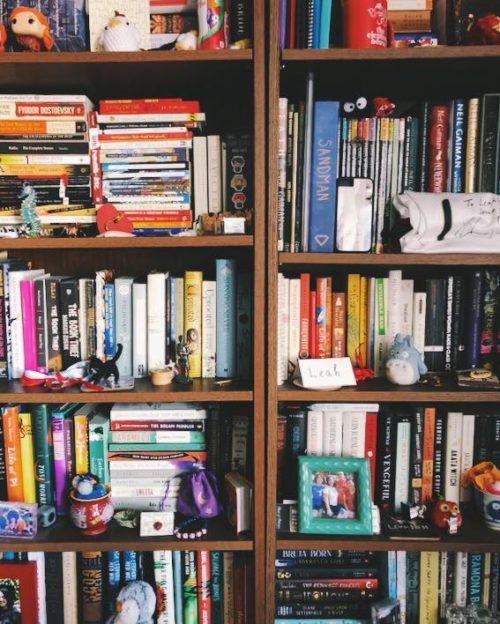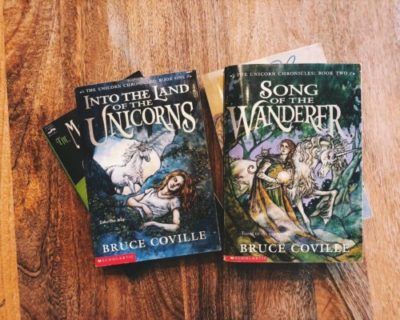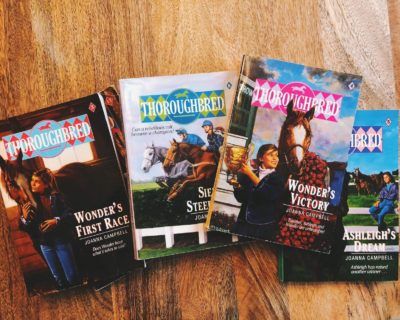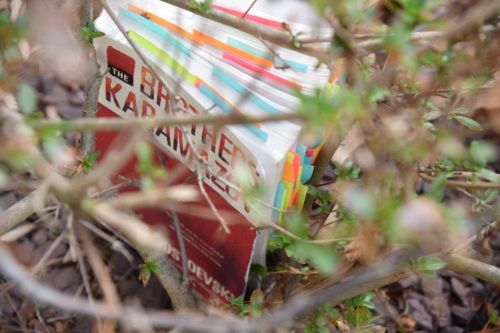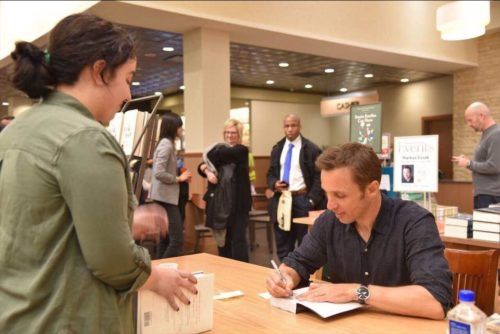That’s simply not enough. It’s never enough. What a terrifying number. It’s made me look at DNF-ing books in a totally different light. If the book isn’t good, it does not to deserve to be one of the 7.8k I have left. If it’s over 500 pages, it had better be good, because it will probably take up the reading space of two books. That number has also made me reflect on the books I’ve read so far. I am delighted to report that I’ve read many more good books than I’ve read bad ones. I am delighted to report that after years of not thinking about it nearly enough, I became better aware of the need to prioritize diverse books and women authors in my early 20s, and that it made my entire reading experience so much better. I am also delighted to report that while many friends my age report losing their motivation to read post-college, I went from reading 100 books a year before college and around 40 during college to being on track to read 200 books this year (it helps that I review books as my side job now). So while I was thinking of this, I thought perhaps of making a list. What are the 25 books that have brought me to age 25? The 25 that either bolstered me up and kept me going, or inspired me to continue? The 25 that for someone to understand me as a person, they could tackle one by one? I thought perhaps it would be good to share these with you, readers. I hope you agree.
Childhood
1. Into the Land of the Unicorns by Bruce Coville
My first novel was written in 2nd grade, in a little spiral notebook with ballet shoes on it that a friend would then never give back (so head’s up for future collectors of my work: that’s the big steal if you can find it). In that first version, it was very much based on the unicorns from Coville’s brilliant novel about a young girl who stumbles into a fantasy world.
2. The Ragwitch by Garth Nix
I found this book beat-up in a little used bookstore in New Jersey that my great aunt would take me to when I was young. I read it dozens of times. I don’t remember much of the end, but I remember the beginning: a midden. A rag doll with haunting eyes. A sister gone missing. It was frightening and wonderful, and I adored it.
3. Thoroughbred #1: A Horse Called Wonder by Joanna Campbell
For most of my childhood, I wanted to be a jockey, and it’s because of Campbell’s series. I eventually would lose the thread of the series—there were just too many of the books!—but for all of Ashleigh’s story, I was completely hooked. I wanted to race a young filly I believed in. I wanted to be the first woman jockey to win the Kentucky Derby and prove the men wrong.
4. Harry Potter and the Prisoner of Azkaban by J.K. Rowling
Like many of my generation, I was hit hard by the Harry Potter books, which I first encountered in 3rd grade. The fourth was my favorite for a while, then the fifth, and the seventh inspired my Harry Potter tattoo—but I always go back to the 3rd. The Marauders are fun of course—the introduction of Lupin. And the Golden Trio solidifying into a real team is another bonus. But what really gets me is the dementors, and the Patronus spell, and Harry learning how powerful he is, how much happiness he can summon even in the face of total darkness.
A post shared by Leah Rachel von Essen (@whilereadingandwalking) on Feb 18, 2019 at 8:42am PST
5. The Fear Street Saga by R.L. Stine
This might surprise my friends now, but when I was a kid, and then when I was a little tween insomniac, I adored teen horror novels. I loved the twists and the suspense: Diane Hoh, Lois Duncan, Christopher Pike all wrote books that I checked out of my small little hometown library. But the best of all remains the first: I found this one, the prequel setting up Stine’s Fear Street series, when I was possibly too young for it, and I ate it up: curses and fires and haunted jewels: two families betraying each other across centuries. I lost my original copy, with its cover torn and map missing, but recently managed to find a replacement online.
6. The Hobbit by J.R.R. Tolkien
This one…is kind of a joke, but also not. In sixth grade, we read this fantasy classic in class, out loud. It took us six months. It was a nightmare. I still can’t think about that book too much without a small shudder. But it taught me about the highs and lows of English education at an early age. It made me appreciate classes that challenged me for the first time—it wasn’t enough to skate along writing sonnets about The Hobbit, I wanted to analyze and be trusted to read on my own. I was thrilled to get that in honors English in middle school.
Young Adulthood
7. Neverwhere by Neil Gaiman
Gaiman is my favorite author, and my writing hero. It all began with this. After the 7th Harry Potter book came out, the Barnes & Noble that hosted my book club informed us we couldn’t be a Harry Potter Book Club anymore. So we became a fantasy book club (although one that still talked a tremendous amount about Harry Potter). Neverwhere was one of our picks. It was my introduction to the author. I now have a Neil Gaiman collection that takes up an entire shelf, and prints of his poetry decorate my walls. I have gorgeous illustrated tomes and special, limited editions. But when I first met Gaiman in 2013, this tattered paperback was the one I asked him to sign.
8. The Brothers Karamazov by Fyodor Dostoevsky
My education and work ethic changed with my sophomore year English teacher. I was solid student, but school was relatively easy for me, and I skated through with low A’s. She informed me that she expected more of me, and that if I kept it up, she would give me a B. I couldn’t fathom getting a B in my best subject, so I ramped up my work ethic. And the effect spread—to all my classes, and then to all my life. I credit that shift for getting me to where I am today. As we were having these conversations, I told her I had read Les Miserables the previous year and liked it very much. She recommended Dostoevsky. When she saw me reading The Brothers Karamazov the very next day, and finishing it just a week later, she let me borrow her copy of Crime and Punishment. When I was done with that book, she gave me more. She introduced me to The History of Love, Extremely Loud and Incredibly Close, and Hard-Boiled Wonderland and the End of the World—all now favorites. The books I read that year changed my literary world, as did the way she took my opinions and thoughts on them as seriously as she would any adult’s.
9. Fairytales of Hans Christian Andersen
I had always been interested in folk and fairytales, and from an early age, my grandfather had been handing me collections to read, of the fairytales as they originally stood, dark and strange. When I reread Andersen’s stories not long before college, I reminded myself that I didn’t want to give them up: I wanted to study them. In college, I would propose fairytales as the minor concentration within my major, and it would lead me to classes on surrealism.
9. The Book Thief by Markus Zusak
Zusak’s book changed the way I see narration. It’s a gorgeous book full of heart, and was the first book that left me crying on an airplane. Fun fact: every time I have finished this book, literally every time, I have somehow been on an airplane, and every time I have cried conspicuously on that airplane.
11. Anna Karenina by Leo Tolstoy
One of my grandfather’s best gifts to me: he sent me his three favorite books in the mail. I read all three, but Anna Karenina had the biggest impact—I read it in record time and then began emailing him about the brilliance of it, what it said about contentment and female agency, what it meant that Tolstoy’s model characters of the book were not the “main” characters by any means. I think about its vision of life often.
12. Life of Pi by Yann Martel
I read Martel’s modern classic in the form of a clearly pirated paperback I bought on a sidewalk in Pune, India, while studying abroad. The ending hit me very hard. It made me think of the powers of storytelling, of believing, of surviving, and left a lasting impression on me that I also channeled into my studies of unreliable narrators and surrealism (questions of “is that real?” and “does it matter?”).
College Years
13. The Dictionary of the Khazars by Milorad Pavić
This wild, winding book turned out to be the perfect outlet for everything I wanted to do with my studies: a novel that is not a novel, a novel full of mysteries and surrealism and magic. I wrote a paper that was by far the best work of literary criticism I’ve produced. That paper became the foundation for my thesis: I spent nearly a full year and a half immersed in this book.
14. Ficciones by Jorge Luis Borges
It started because a book originally written in Spanish had to be part of my thesis, and because I knew Borges touched on some of the same things Pavić did. But I couldn’t have suspected the ways his stories would braid up my mind in questions about language, reading, and the writer’s role.
A post shared by Leah Rachel von Essen (@whilereadingandwalking) on Aug 14, 2017 at 8:58pm PDT
15. The Buried Giant by Kazuo Ishiguro
The book itself was good. But when I saw Ishiguro speak, years before he would win the Nobel, it was his words that hit me. He said that the book was a love story. That too often, we think about love stories as two people meeting and then finally getting together. But the real love story, Ishiguro said, is what comes after: the years of renewing that love, of forgetting some things and remembering others, of staying together. That stuck with me, and I’ve written about it many times since.
16. Pale Fire by Vladimir Nabokov
I love books that are hard to read. This was an epic puzzle, and I got to learn about it from one of the best Nabokov scholars in the game. The classes were full of wonder, and it was the first book I annotated so much that I had to worry its pages would come apart.
A post shared by Leah Rachel von Essen (@whilereadingandwalking) on Jan 21, 2017 at 4:34pm PST
17. Bad Feminist by Roxane Gay
Before college, gender theory was still a mysterious thing I wanted to know about but didn’t. I learned a little of the classic stuff in my first year of college, but this was my first real introduction to honest, raw, modern essays about gender. It was also one of the first successes of my book blog: I posted about accidentally destroying the book and taping it back together, and Roxane liked the post, and at the signing, she recognized my sham of a book and promised to send me another (she did). After this book, I committed to reading more about feminism.
18. The Death and Life of Great American Cities by Jane Jacobs
As a literature major and religious studies minor, I really wasn’t expecting a city planning class to be one of the most profound influences of my life moving forward. But reading Jacobs opened my eyes to a lot of the pernicious ways that gentrification and city planning that seems innocent can be used to change city dynamics and make them less safe and more segregated. It made me much more aware and ready to approach a lot of the great literature coming out of Haymarket Books and out of some great nonfiction I would encounter later on in my adult life.
19. Orlando by Virginia Woolf
I read it in a magical realism and surrealism class where the grad student teaching the class had a very limited sense of what surrealism was and meant. When the class jumped into an excited discussion of what it meant to have a character like Orlando in early 20th century literature, a character who could be considered genderfluid or transgender, and how unexpectedly revolutionary it was for Woolf to explicitly shift Orlando’s pronouns from ‘he’ to ‘they’ to ‘she’—the grad student cut us off. She said that we could not impose modern ideas on an older text, and moreover, surrealism meant that we should not be talking about what ‘really’ happened or what it might mean. I had rebelled in small ways in classes before. But this is the first time I felt like I had an opinion that mattered, and that I had the knowledge and background to speak to. I spent the next 15 minutes arguing with the teacher about how ambiguity in surrealism can have social and political meaning. It was a shift. I felt like I could talk with the adults now.
A post shared by Leah Rachel von Essen (@whilereadingandwalking) on Nov 9, 2017 at 8:20pm PST
20. Paradise by Toni Morrison
Can you believe I didn’t read Morrison until I was 22? Paradise was my first Morrison and remains my favorite—even though every book she’s written is stunning. I read it in early June in Chicago, and my memories of it are still diffused with the smell of lilac. I’ve read much Morrison since, and was able to briefly meet her and have her sign my paperback of the book, and seeing her speak is one of the highlights of my literary life.
Adulthood
21. Things We Lost in the Fire: Stories by Mariana Enríquez
A gorgeous book in translation, this short story collection reopened my eyes to the magic of short stories. For a long time, I had neglected them because I’d been forced to read so many dry literary fiction tales. Now, I was reminded of how fantastic stories can be, particularly in the realm of surrealism and fantasy. Also how feminist—I adored Enríquez’s combination of social and surrealist horror. I started to seek out collections again.
A post shared by Leah Rachel von Essen (@whilereadingandwalking) on Nov 21, 2017 at 10:19am PST
22. A Writer’s Diary by Virginia Woolf
When I went to Persephone Books in London in 2017, I was looking for this book. I read it and annotated the heck out of it later that fall. It meant a lot to me to read about Woolf’s struggle with mental illness alongside her reflections on writing; also to watch her own understanding of her depression shift and grow. Her words resonated a lot with me.
23. Electric Arches by Eve Ewing
A friend tagged me on Twitter because she knew I reviewed books, and thought I would like this poetry collection. I got a review copy—and wow, did I love it. It brought me back to poetry, but it also, crucially, brought me into a stronger awareness of the Chicago literary scene, which I didn’t know well enough yet at the time. That greater awareness led to my greater support and care about what was happening in Chicago poetry and literature, which in turn has led to a pride in being a Chicago writer.
A post shared by Leah Rachel von Essen (@whilereadingandwalking) on Oct 9, 2017 at 10:56am PDT
24. The Stone Sky by N.K. Jemisin
The entire Broken Earth trilogy, beginning with The Fifth Season and then The Obelisk Gate, was a stunning epic work that deserved every Hugo and Nebula it received. But The Stone Sky was really something beyond. It smashed all genre conventions. The trilogy had already had a 2nd person point of view narration, a magic based in kinetic energy and scientific truth. But this third book takes fantasy, science fiction, surrealism, and more, and collapses them. It defies them, and it rises above them. It painted the picture of the kind of epic series I would like to maybe write, if I could ever rise to that level of skill and imagination.
25. They Can’t Kill Us Until They Kill Us by Hanif Abdurraqib
Music essays, huh? I was unconvinced, but when I heard Abdurraqib speak with Eve Ewing at Seminary Co-op Bookstores in Chicago, I wanted to dig into this person’s work. And I read an essay about Carly Rae Jepsen by him that held a ton of respect for her work. I was intrigued, and started reading. Basically every essay made me choke up. Abdurraqib has such a talent for music writing—but I soon found that also, I just had been neglecting a type of music writing that was out there already, a type that isn’t snobby, that doesn’t remove the people factor. It opened my eyes to that—and it opened my eyes back up as well to essays and nonfiction. And now I need to read more and more and more of that. 25 amazing books that changed my life. Here’s to many, many more. What books would make your list?
